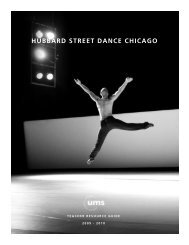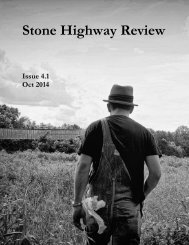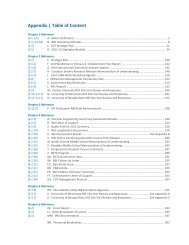Fries
Fries
Fries
You also want an ePaper? Increase the reach of your titles
YUMPU automatically turns print PDFs into web optimized ePapers that Google loves.
ICAME Journal No. 342. Gathering data systematically, exhaustive analysis, and counting coexisting conflictingsignals of meaninga. Periphrasticuse of shalland willb. History ofEnglish3. AmericanEnglishgrammar4. Intonation ofyes-noquestionsEnglish drama: 50 playsfrom every decade ofBritish Literature, 1560–1915. 18 plays each fromAmerican and BritishLiterature from 1902–1918. ~ 20,000 instancesof shall and will.English from 10’th centuryto mid 20’th century.20,000 words from eachtime period, Samples takenroughly each 50 years.400,000 words total.2,000 complete letters,plus excerpts from about1,000 additional letters, allwritten to the wardepartment during WW I.39 episodes of a TVshow(‘What’s my line?’). 2,561yes/no questionsExamine the actual uses of shall and will inEnglish during the early modern Englishperiod with a view to evaluating the accuracyof the rules found in school grammars and theiruse in teaching English.Discover the stages by which a grammaticalsystem characterized by the use of inflectionschanged into a system where the order ofelements was a major signal of grammaticalfunction.Compare the language habits of uneducatedwith those of educated. (First contrastiveanalysis)Check accuracy of previous descriptions ofintonation of yes/no questionsNotes* An earlier version of this paper was presented at the Nineteenth Euro-InternationalSystemic Functional Linguistics Conference and Workshop, July 23–25,2007. Saarbrücken, Germany. I would like in addition to acknowledge the commentsof Elizabeth Berriman and Richard Forest who commented on an earlierversion of the paper.1. This view contrasts sharply with Simpson and Swales’s (2001: 1) statement:“Corpus linguistics is essentially a technology….”2. I do not want to claim that <strong>Fries</strong>’s work was typical of the time. Indeed, Iwould claim that his work differed significantly from that of other linguistsof his generation, particularly those in the US. As partial support for myposition note the exclusion of any significant discussion of <strong>Fries</strong>'s workfrom the otherwise extensive history of American structuralism in Hymesand Fought (1981), in spite of the fact that they considered him an importantfigure in the linguistics of that time (personal communication fromFought).114








